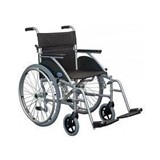In the first New Zealand study of its kind, Department of Human Nutrition researchers compared dietary zinc intake, blood serum levels of zinc and growth measurements in a national survey of 1927 schoolchildren aged between 5 to 15 years. The findings were recently published in the British Journal of Nutrition.
Study lead author Professor Rosalind Gibson says that the research team found that 21 per cent of participants who were of Pacific ethnicity had low levels of zinc in their blood serum. Corresponding rates were 16 per cent for Maori schoolchildren and 15 per cent for those belonging to the NZ European and Others category.
Across all three groups, the risk of suboptimal zinc status was also found to be particularly high among younger boys (5-13 years old), especially in the Pacific group.
"The prevalence of low serum zinc levels among Pacific children is concerning because it exceeds the threshold at which the World Health Organization recommends public health interventions to improve zinc status," Professor Gibson says.
Growth measurements showed that the Pacific boys, but not girls, with low blood serum zinc levels had a lower average height for their age than counterparts with normal levels. A similar tendency was found for Maori boys in the study, she says.
Professor Gibson says the greater prevalence of low serum zinc levels among Pacific boys is likely to be partly to do with ethnic differences in growth patterns and body composition.
"Pacific and Maori children tend to undergo puberty earlier and are taller for their age than European children. Also, Pacific children usually have more lean body mass than European children of similar height. As a result, their zinc requirements, especially for the boys, are likely to be higher than European children of the same age," she says.
The researchers also found that by current dietary recommendations for zinc, only 8 per cent of the Pacific schoolchildren were considered to have inadequate intakes of zinc.
"That rate is less than half of the actual prevalence of low serum zinc levels found in this group. This significant gap suggests that more research is needed to better define how much zinc New Zealand Pacific children should be getting in their diets."
Professor Gibson says that good dietary sources of zinc include lean red meat, organ meats such as liver and kidney, fish, dark chicken meat, cheese, egg yolk, and breakfast cereals fortified with zinc, and that zinc deficiency can be easily prevented by consuming these foods.
"Most children would not require supplements, but parents who are concerned that their child may be small for their age and have a poor appetite should consult with their healthcare professional to see whether zinc deficiency might be an issue."








